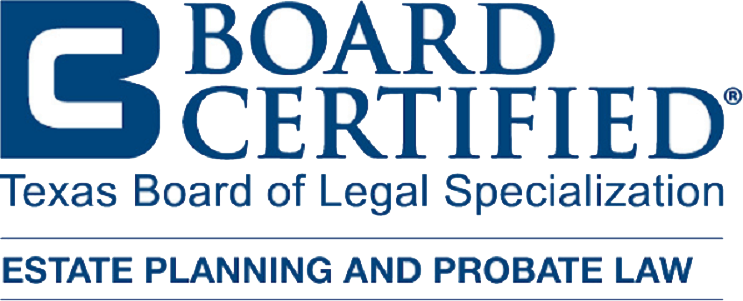Probate Law Essentials: What You Need to Know
Probate law is a crucial aspect of estate planning that governs the distribution of a deceased person's assets and properties. When someone passes away, their estate goes through a legal process known as probate, overseen by the court. This process ensures that debts are paid, and assets are distributed according to the deceased person's wishes or state laws if there is no will. Understanding probate law is essential for anyone involved in estate planning, whether you're creating a will, serving as an executor, or expecting to inherit assets. Probate law provides a framework for resolving disputes and ensuring a fair distribution of assets among beneficiaries. While probate proceedings may seem daunting, having a basic understanding of probate law can help simplify the process and avoid potential complications. In this article, we'll explore the essentials of probate law, including its purpose, process, and key concepts to help you navigate this important aspect of estate planning.
The Probate Process
The probate process is a series of legal steps that must be followed to settle the estate of a deceased person. It typically begins with the filing of the deceased person's will, if one exists, with the probate court. If there is no will, the court will appoint an executor to oversee the distribution of assets according to state laws. The executor is responsible for identifying and inventorying the deceased person's assets, notifying creditors, paying debts and taxes, and distributing remaining assets to beneficiaries.
During probate, the court oversees the process to ensure that it is carried out according to the law and that the deceased person's wishes are respected. This may involve hearings, filings, and other legal proceedings. Once all debts are settled and assets are distributed, the probate process is complete, and the estate can be closed.
Understanding the probate process is essential for anyone involved in estate planning to ensure that their wishes are carried out and their assets are distributed as intended. By familiarizing yourself with the probate process, you can navigate the complexities of estate administration with confidence and peace of mind.
Types of Assets Subject to Probate
In probate law, certain types of assets are subject to the probate process upon the owner's death. These typically include real property, such as land and buildings, as well as personal property, such as vehicles, furniture, and jewelry. Additionally, financial assets like bank accounts, investment accounts, and stocks may also be subject to probate.
Assets subject to probate are those that are solely owned by the deceased person and do not have designated beneficiaries or joint owners with rights of survivorship. These assets must go through probate to transfer ownership to the intended heirs or beneficiaries.
Understanding the types of assets subject to probate is crucial for estate planning purposes. By identifying these assets and planning accordingly, individuals can take steps to streamline the probate process and ensure a smooth transfer of assets to their loved ones. Additionally, exploring strategies to minimize probate exposure, such as establishing trusts or joint ownership arrangements, can help simplify the estate administration process and reduce costs and delays associated with probate.
Probate vs. Non-Probate Assets
In probate law, assets can be classified into two main categories: probate assets and non-probate assets. Probate assets are those that are subject to the probate process upon the owner's death, as discussed earlier. These include assets solely owned by the deceased person and not designated to pass outside of probate.
Non-probate assets, on the other hand, bypass the probate process and are transferred directly to designated beneficiaries upon the owner's death. Common examples of non-probate assets include life insurance proceeds, retirement accounts with designated beneficiaries, jointly-owned property with rights of survivorship, and assets held in trusts.
Understanding the distinction between probate and non-probate assets is essential for effective estate planning. By strategically designating assets to pass outside of probate, individuals can expedite the transfer of assets to their loved ones and minimize the administrative burdens and costs associated with probate. Consulting with an experienced estate planning attorney can help individuals develop a comprehensive plan that maximizes the benefits of non-probate asset transfer while ensuring the efficient administration of their estate.
Common Probate Challenges
Probate proceedings can present various challenges and complexities that may arise during the administration of an estate. One common challenge is identifying and locating all of the deceased person's assets, especially if records are incomplete or scattered. This can lead to delays in the probate process and potential disputes among beneficiaries.
Another challenge is resolving creditor claims and debts against the estate. Creditors must be notified of the deceased person's passing, and their claims must be addressed before assets can be distributed to beneficiaries. Disputes over the validity of creditor claims or the priority of payment can prolong the probate process.
Additionally, conflicts among heirs or beneficiaries may arise, especially if there is ambiguity or disagreement regarding the deceased person's intentions or the distribution of assets. These disputes can lead to litigation and further delay the resolution of the estate.
To navigate these challenges effectively, it's essential to work with an experienced probate attorney who can provide guidance and support throughout the probate process. By addressing potential issues proactively and seeking legal advice when needed, individuals can minimize delays and ensure a smooth administration of the estate.
Benefits of Estate Planning
Estate planning offers numerous benefits beyond the probate process, helping individuals protect their assets, provide for their loved ones, and maintain control over their affairs. One of the primary benefits of estate planning is the ability to dictate how assets are distributed upon death, ensuring that loved ones are provided for according to the individual's wishes.
Moreover, estate planning allows individuals to minimize estate taxes and administrative costs associated with probate. By strategically structuring their estate, individuals can maximize tax savings and streamline the transfer of assets to beneficiaries.
Furthermore, estate planning can help individuals plan for incapacity by appointing trusted individuals to make medical and financial decisions on their behalf if they become unable to do so themselves. This provides peace of mind and ensures that their wishes are honored in the event of illness or disability.
Overall, estate planning is a vital tool for individuals to protect their assets, provide for their loved ones, and maintain control over their affairs both during their lifetime and after their passing. By taking proactive steps to plan for the future, individuals can achieve their estate planning goals and ensure a smooth transition of assets to their heirs and beneficiaries.
Probate Law and Family Dynamics
Probate law can have a significant impact on family dynamics and relationships, particularly during the administration of an estate. The probate process may bring to light unresolved issues or conflicts among family members, leading to tension and discord.
One common source of conflict is disagreements over the distribution of assets. Family members may have differing opinions on how assets should be divided, leading to disputes and litigation. Additionally, conflicts may arise if there are concerns about the validity of the deceased person's will or the actions of the executor.
Moreover, family dynamics can be further complicated in blended families or situations where there are stepchildren or estranged relatives. In these cases, navigating the probate process and addressing competing interests can be particularly challenging.
To mitigate conflicts and preserve family relationships, it's essential to approach probate proceedings with empathy, communication, and transparency. Openly discussing intentions and expectations with family members can help prevent misunderstandings and reduce the likelihood of disputes. Additionally, seeking the guidance of a skilled probate attorney can provide invaluable support in navigating complex family dynamics and resolving conflicts amicably.
Conclusion
In conclusion, understanding the essentials of probate law is crucial for anyone involved in estate planning or the administration of an estate. From navigating the probate process to addressing common challenges and preserving family dynamics, probate law plays a significant role in ensuring the efficient and fair distribution of assets.
At Judith P. Kenney & Associates, P.C., we specialize in providing comprehensive probate law services to clients facing estate planning and administration matters. Our experienced team is committed to guiding individuals through the complexities of probate law, offering strategic advice and personalized solutions to meet their unique needs.
Contact us at (972) 713-6133 to learn more about how our probate law services can help you navigate the probate process with confidence and peace of mind. Let us be your trusted partner in achieving your estate planning goals and preserving your legacy for future generations.
Frequently Asked Questions (FAQs)
-
What is probate, and why is it necessary?
Probate is a legal process that oversees the distribution of a deceased person's assets. It ensures that debts are paid and assets are distributed according to the deceased person's wishes or state laws if there is no will.
-
How long does the probate process typically take?
The duration of the probate process varies depending on factors such as the complexity of the estate and potential disputes. On average, probate can take several months to a year to complete.
-
Can I avoid probate?
Yes, certain estate planning strategies, such as establishing trusts or designating beneficiaries for non-probate assets, can help bypass the probate process for those assets.
-
What happens if there is no will?
If there is no will, the deceased person's assets will be distributed according to state laws of intestacy, which typically prioritize spouses, children, and other close relatives.
-
Do I need a probate attorney?
While not required, hiring a probate attorney can provide invaluable guidance and support throughout the probate process. An experienced attorney can help navigate complex legal requirements, minimize disputes, and ensure a smooth administration of the estate.


Contact Information
JUDITH P KENNEY & ASSOCIATES, P.C.
Phone:
Address:
5300 Town and Country Boulevard, Suite 195 Frisco, TX 75034
All Rights Reserved | Judith P Kenney & Associates, P.C.
5300 Town and Country Boulevard, Suite 195, Frisco, TX 75034 (972) 713-6133











